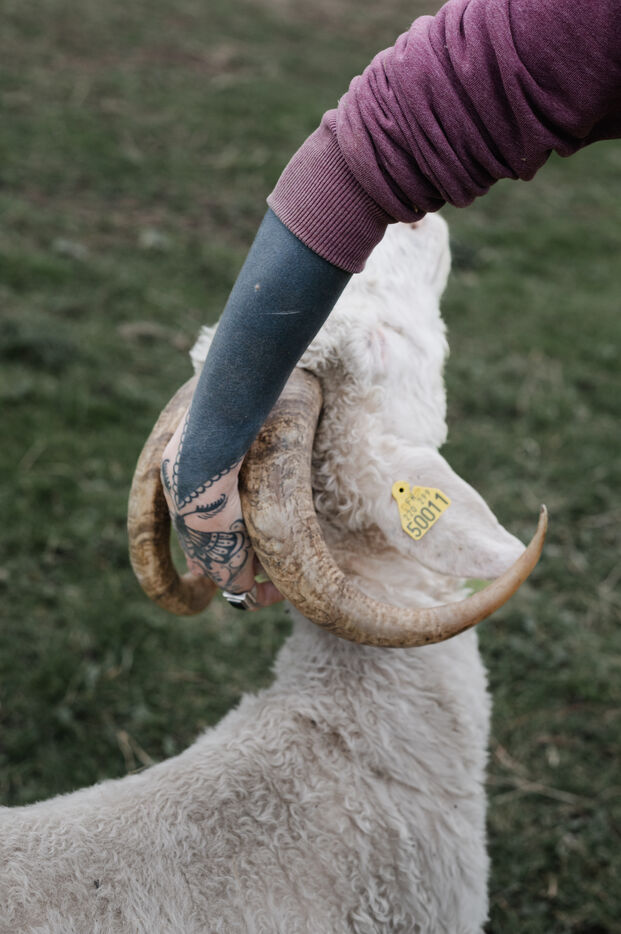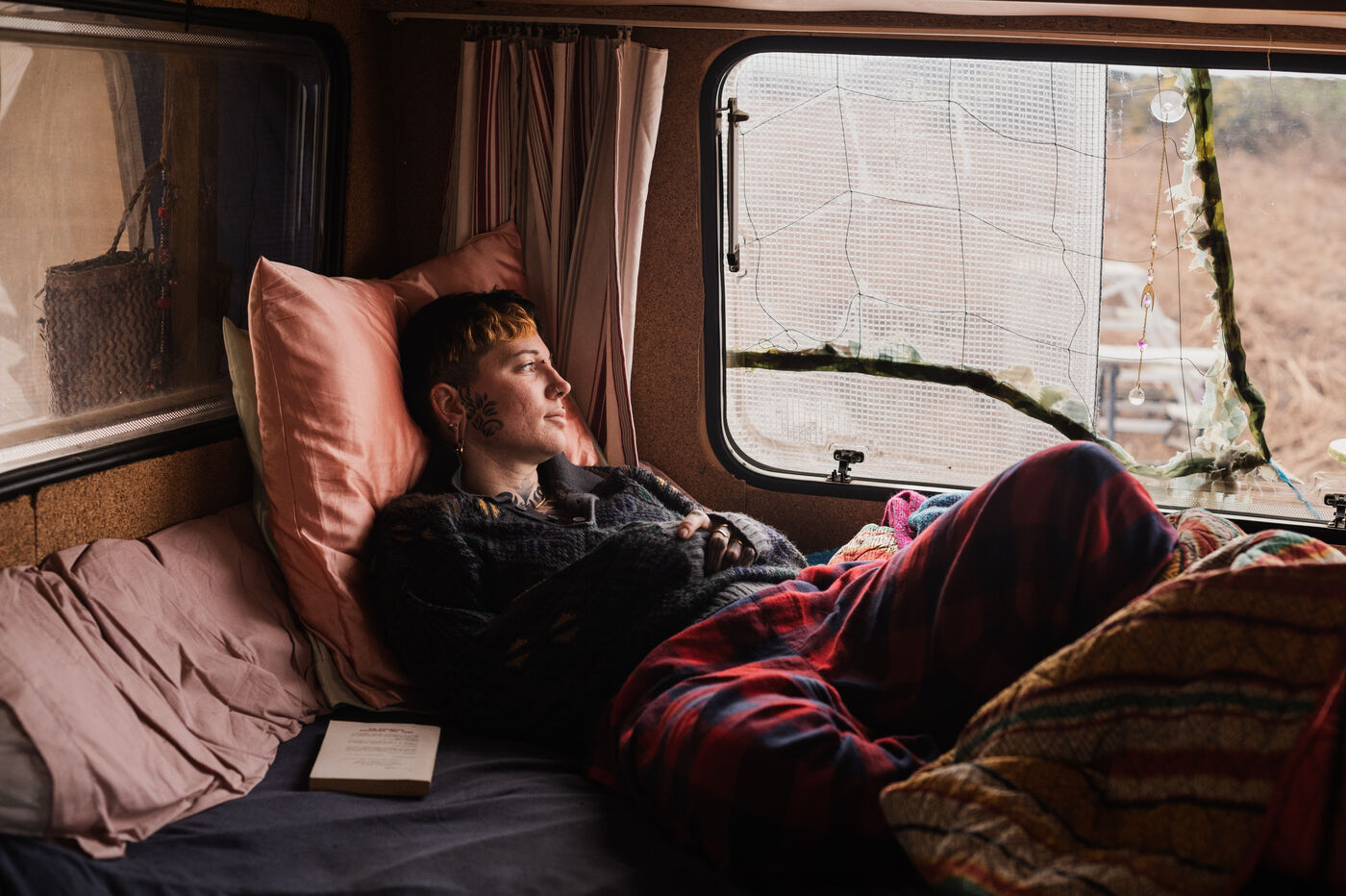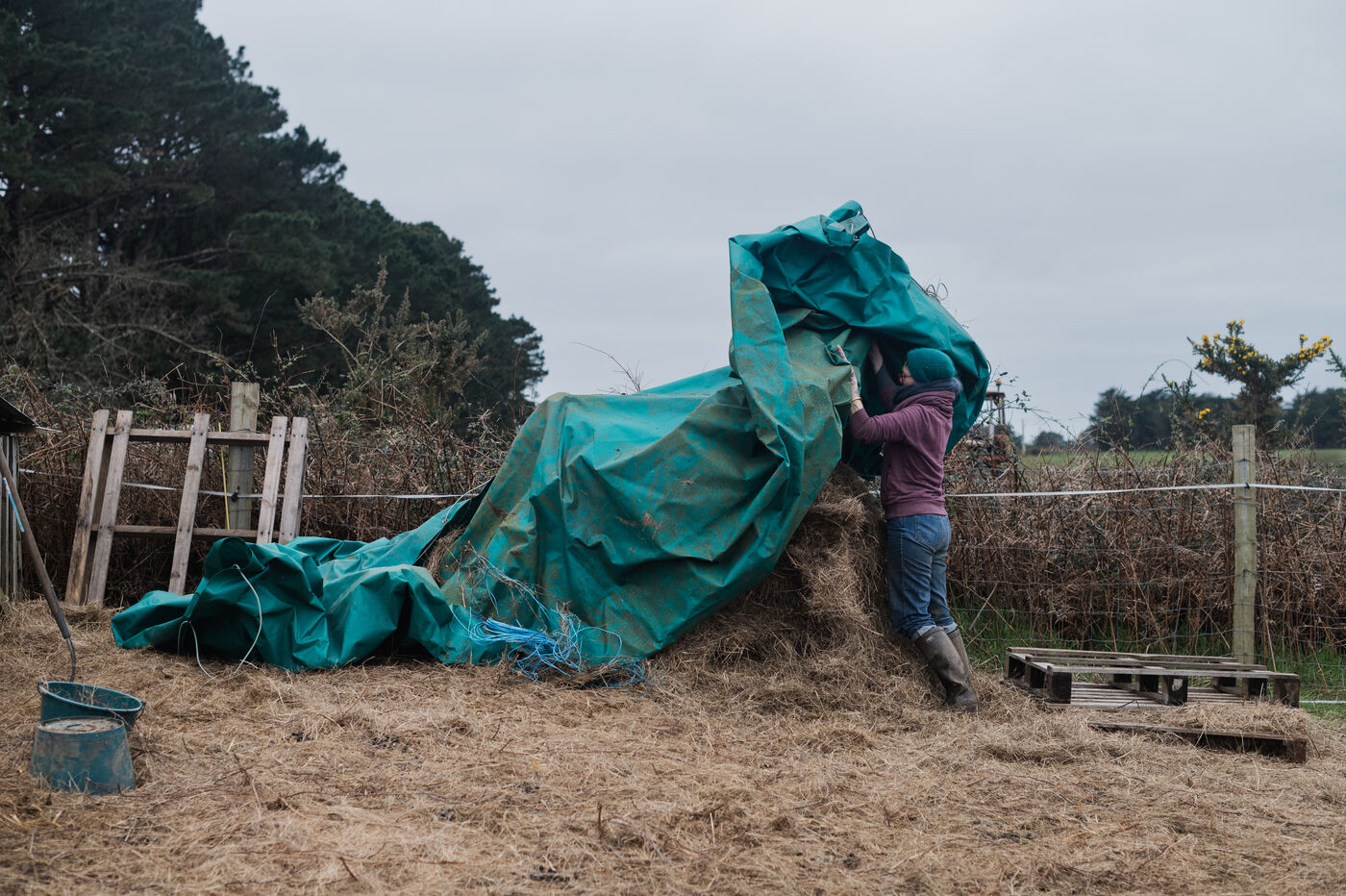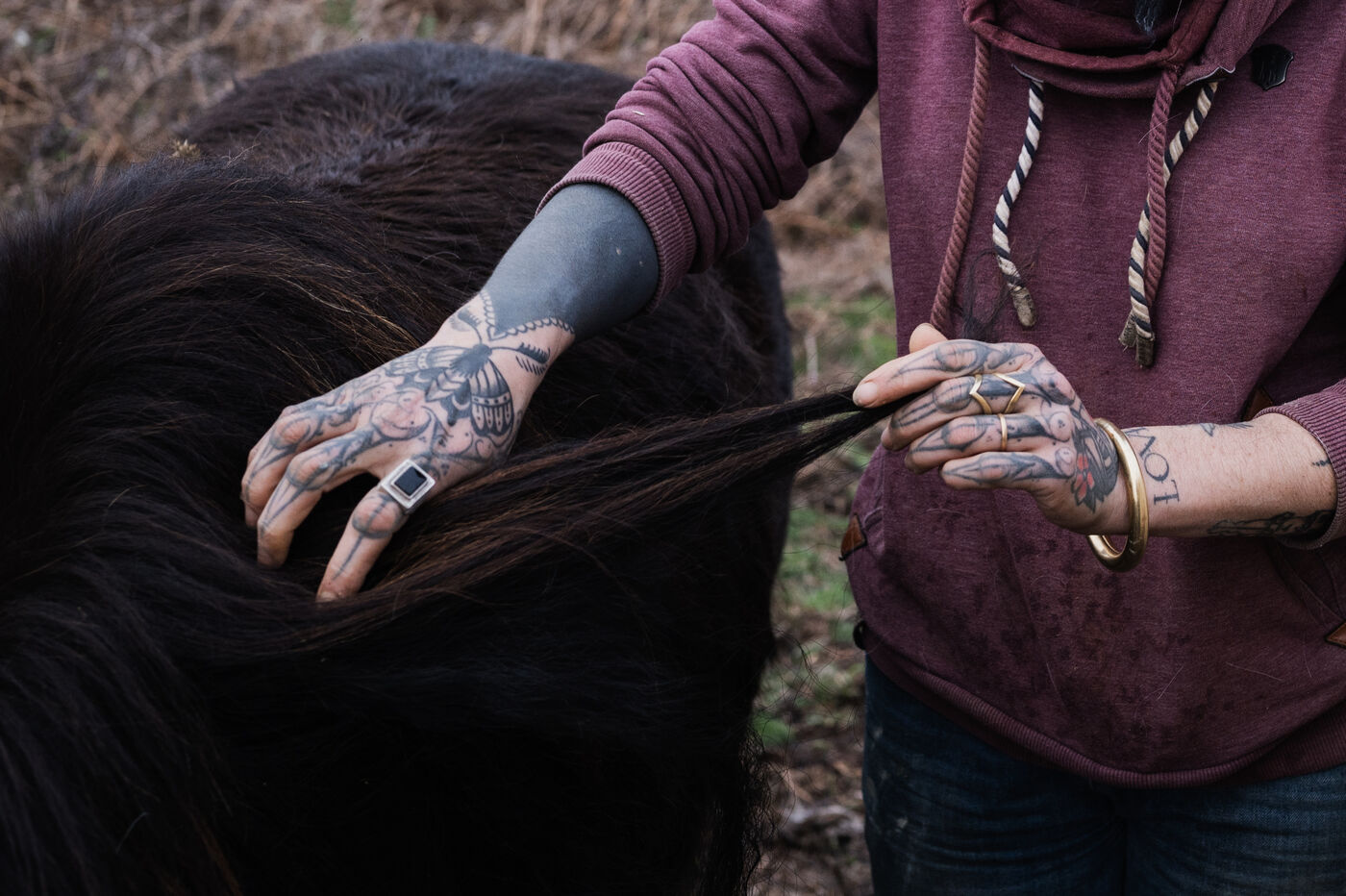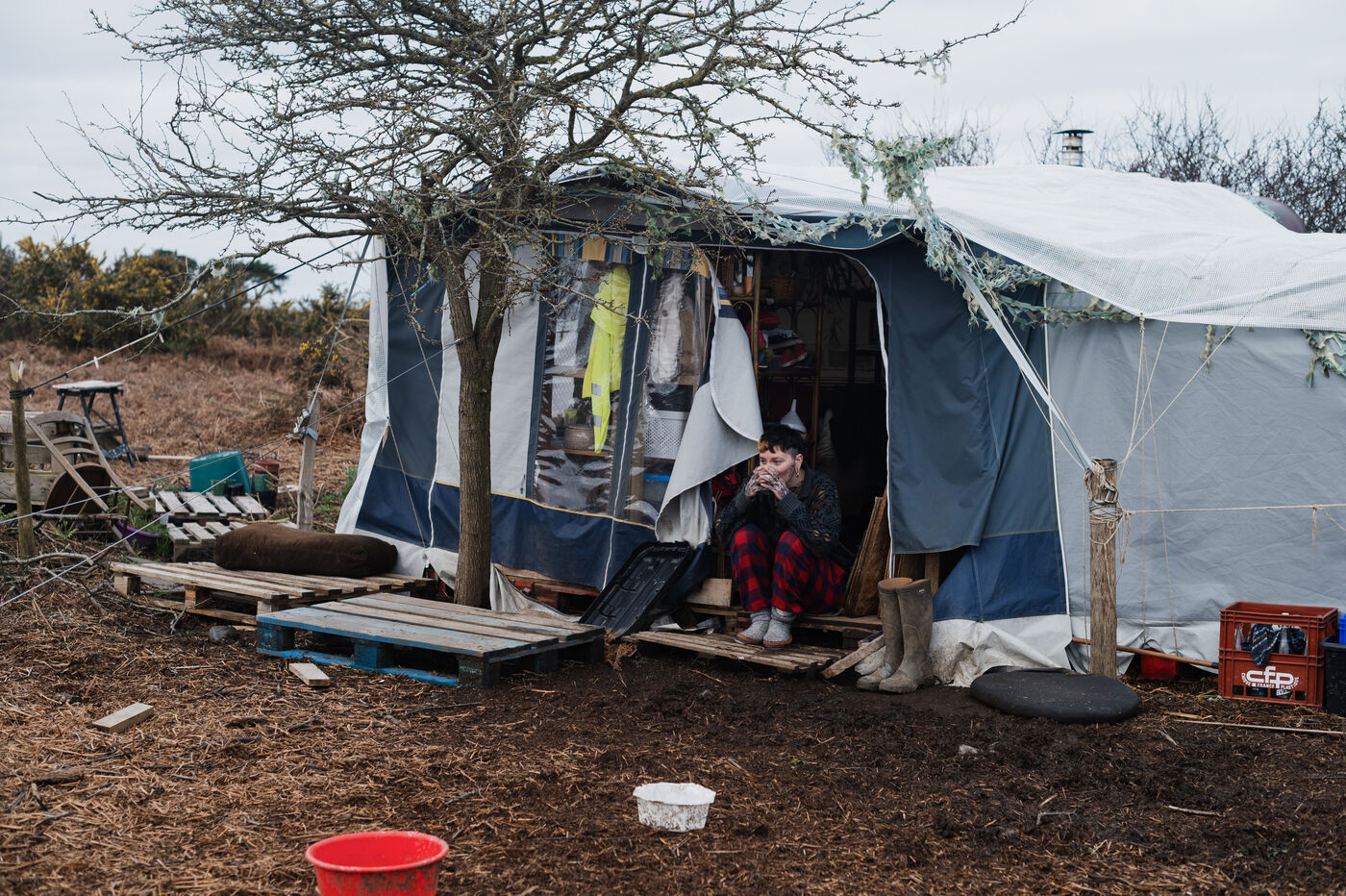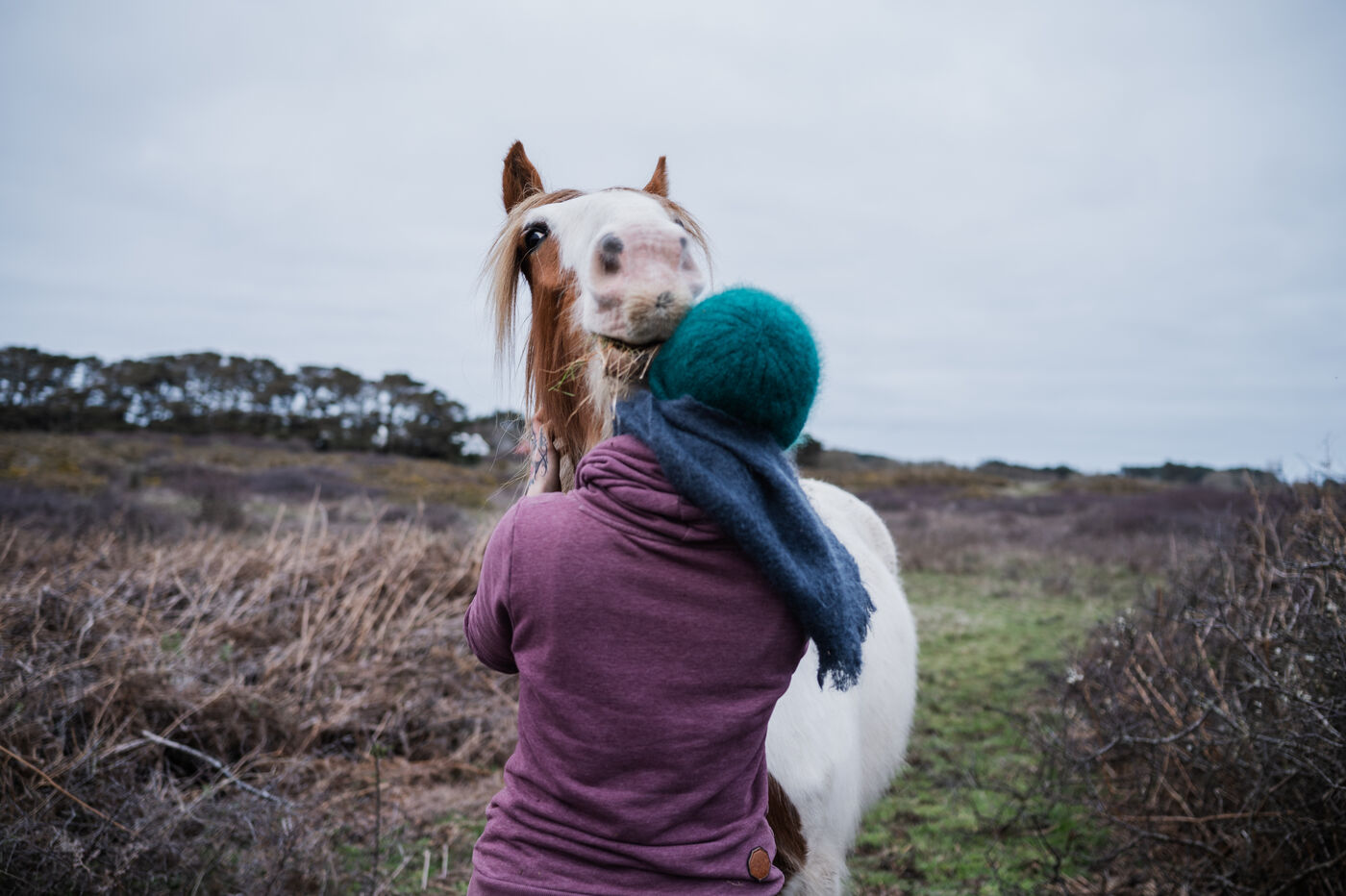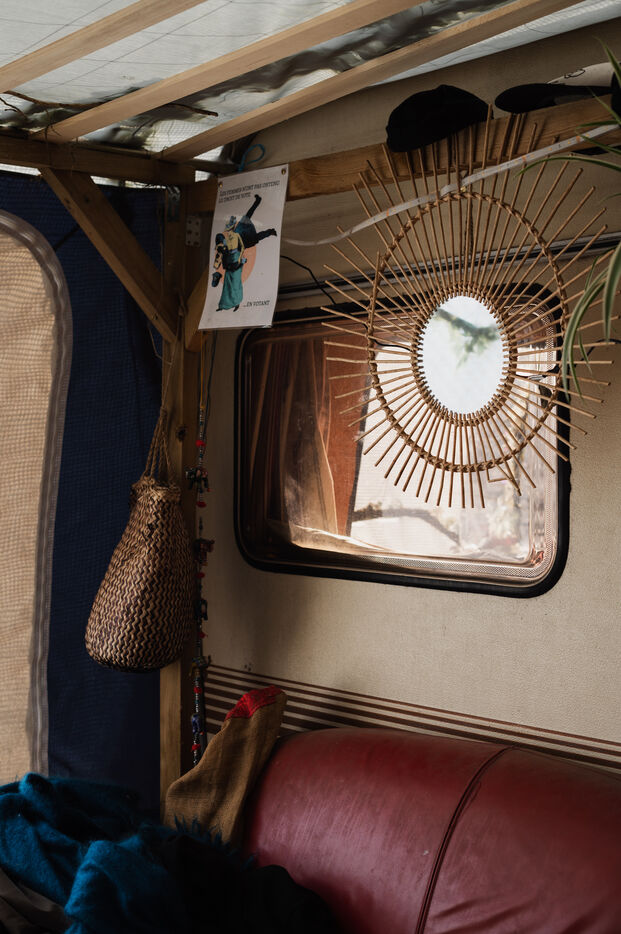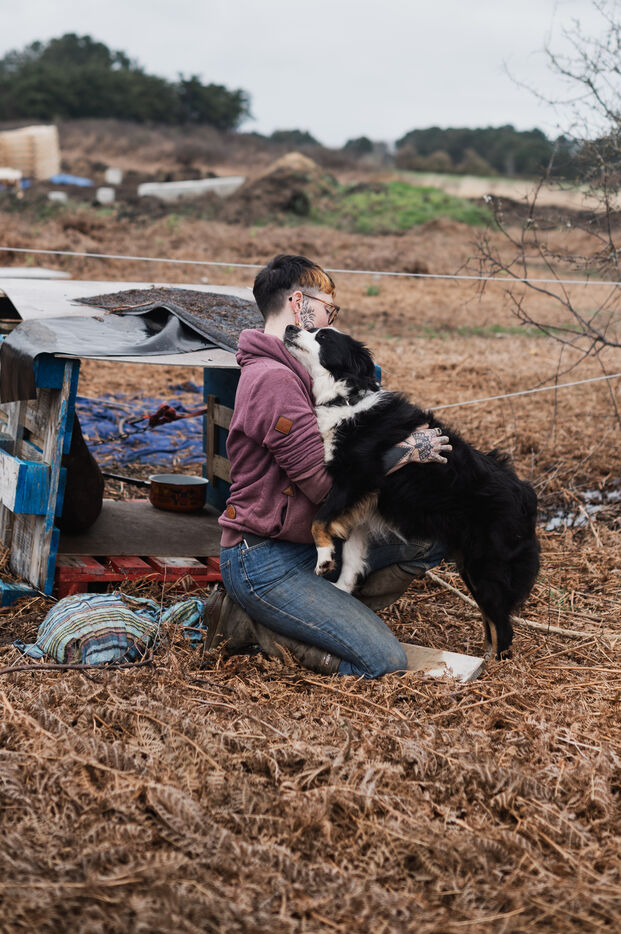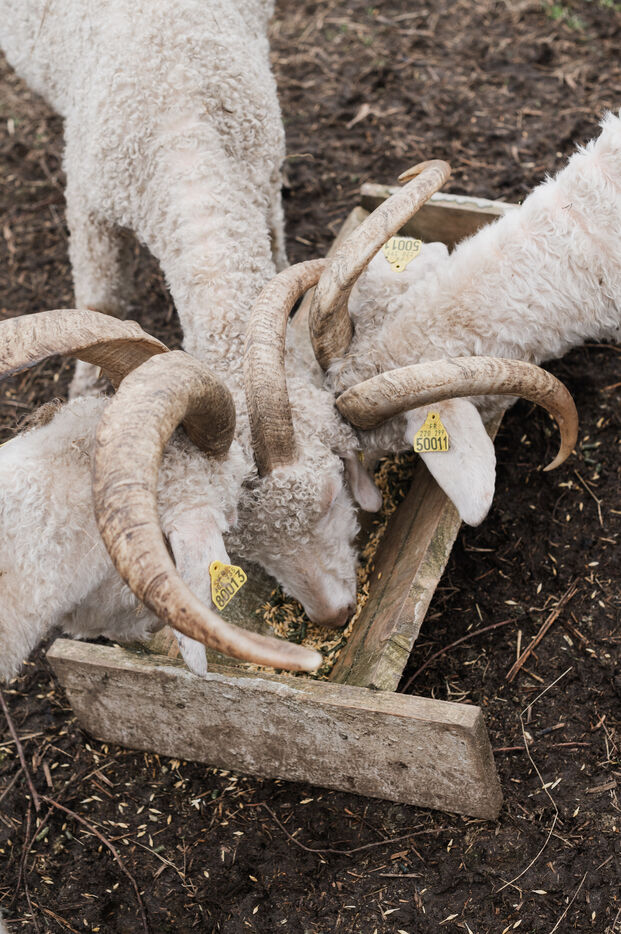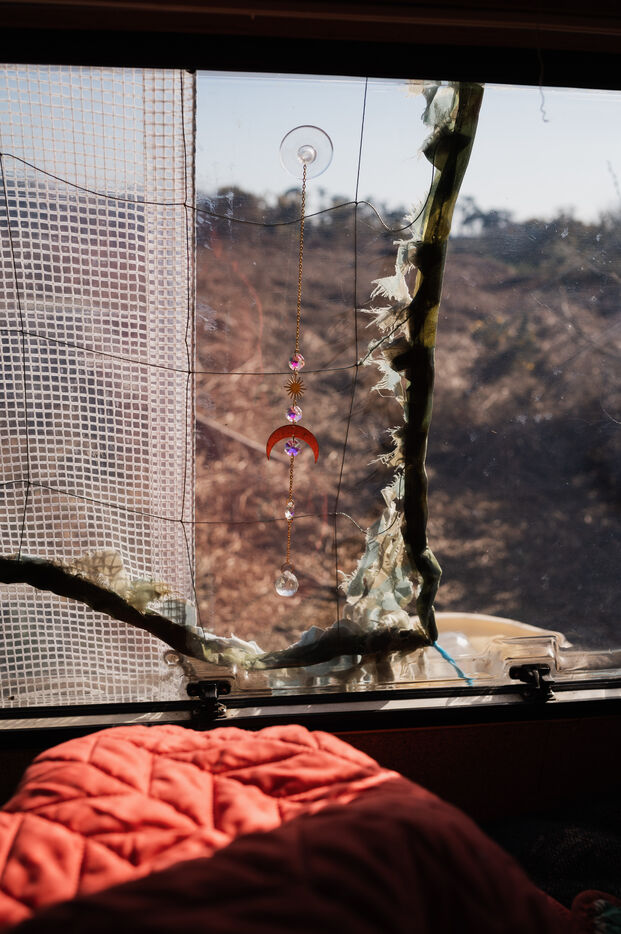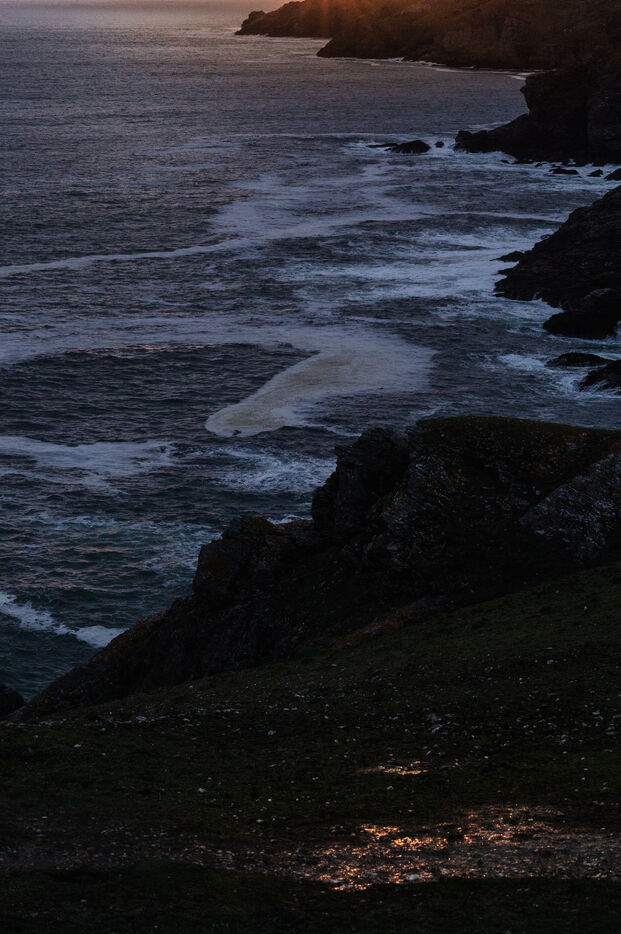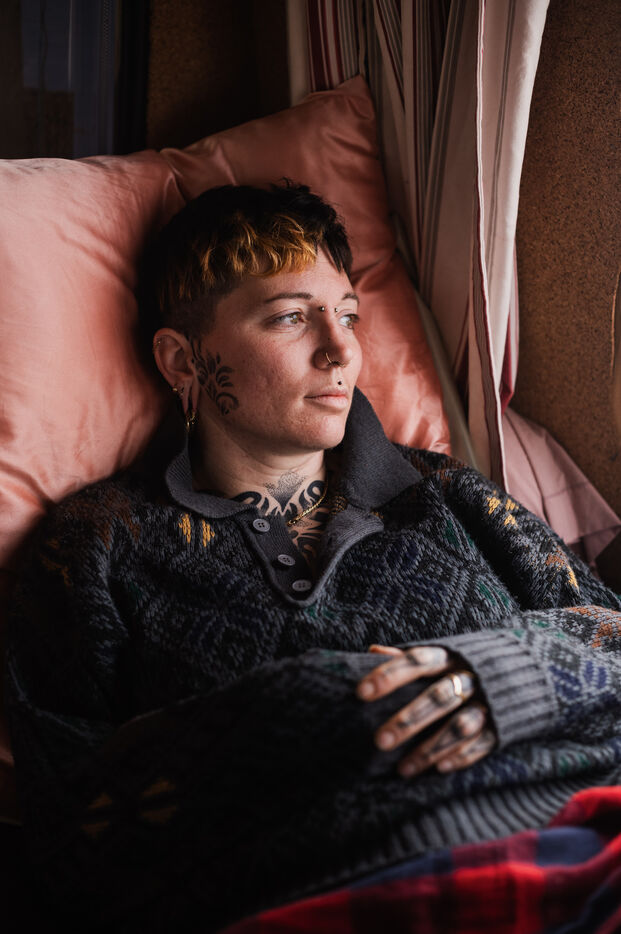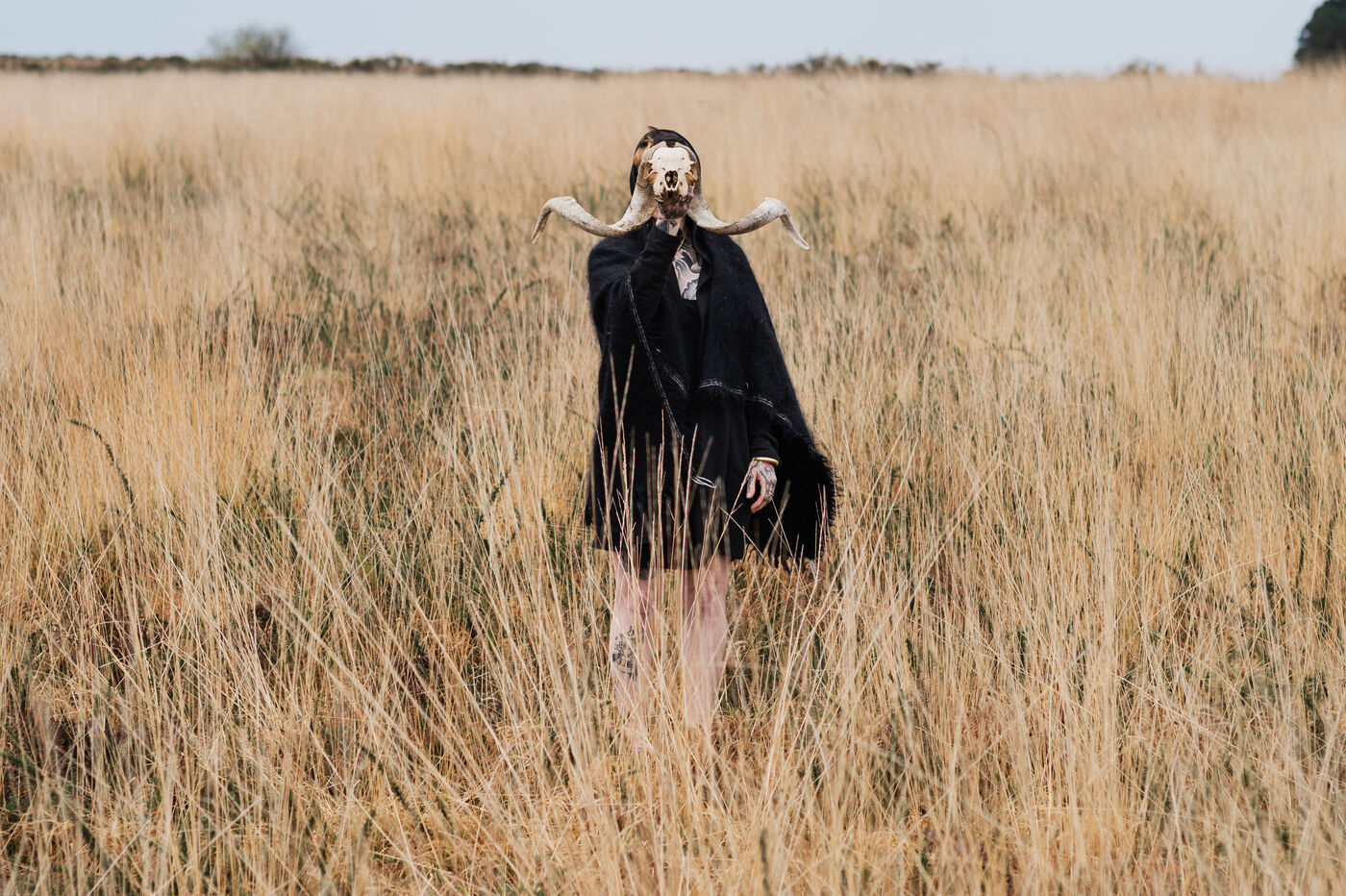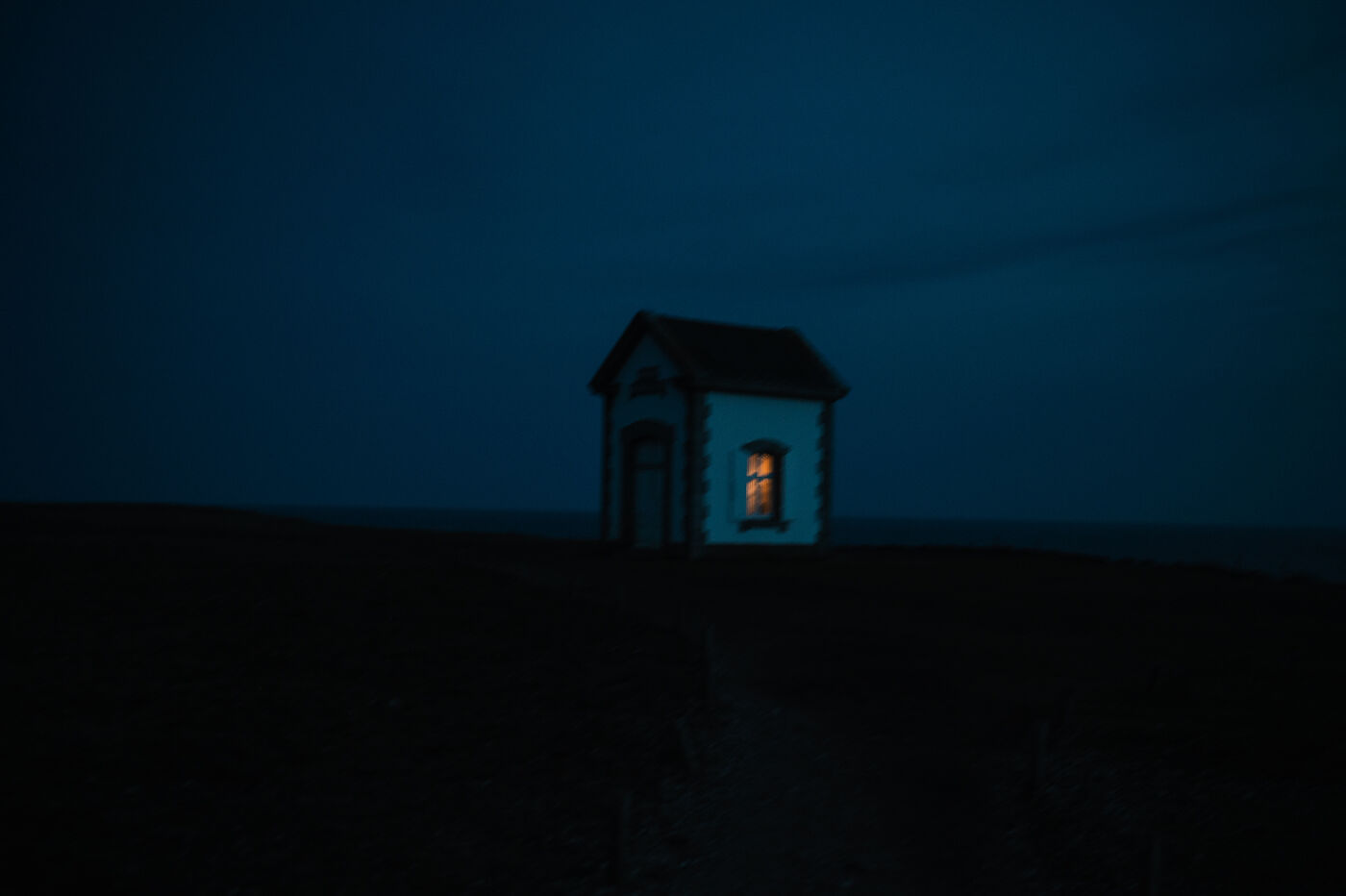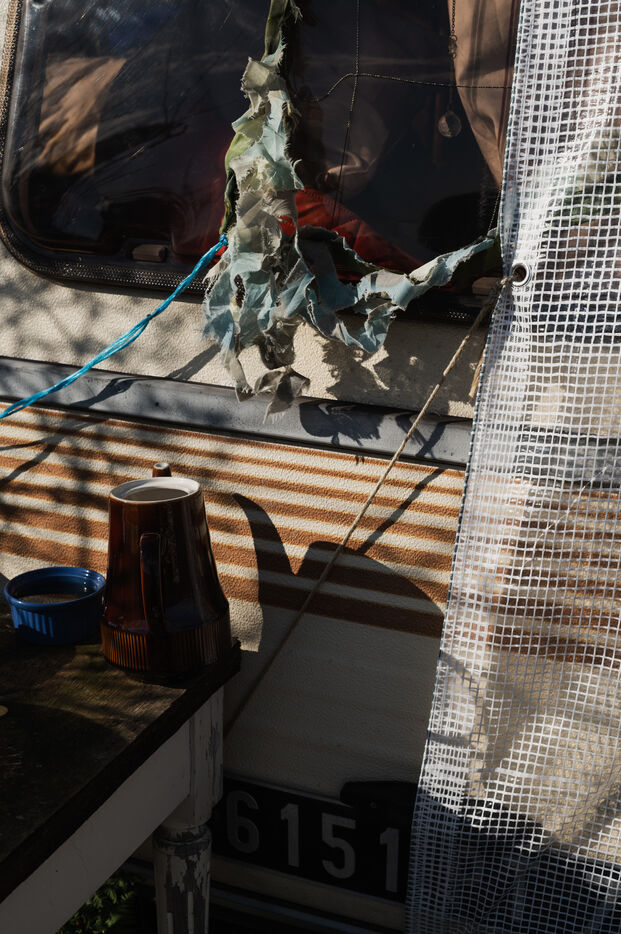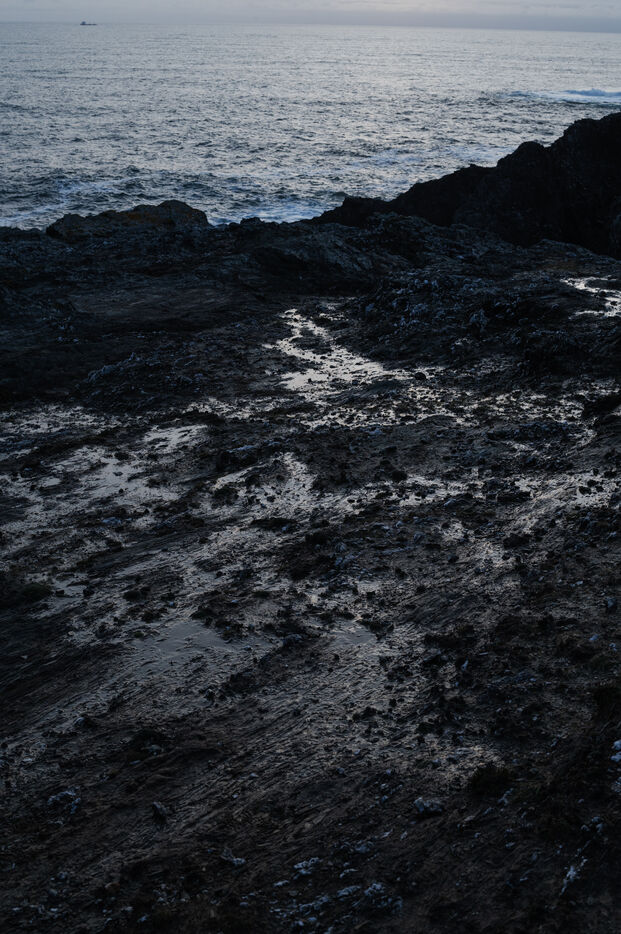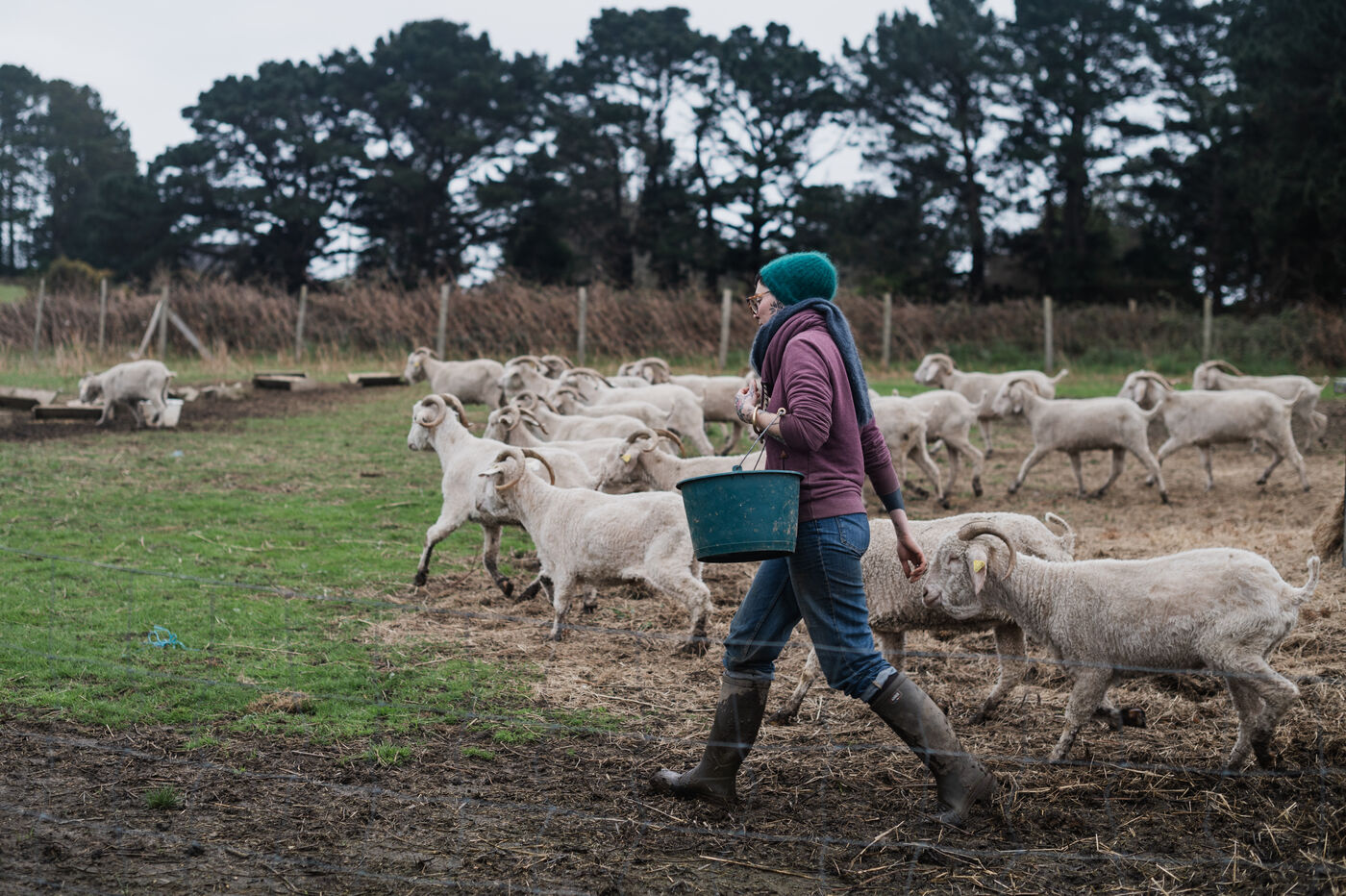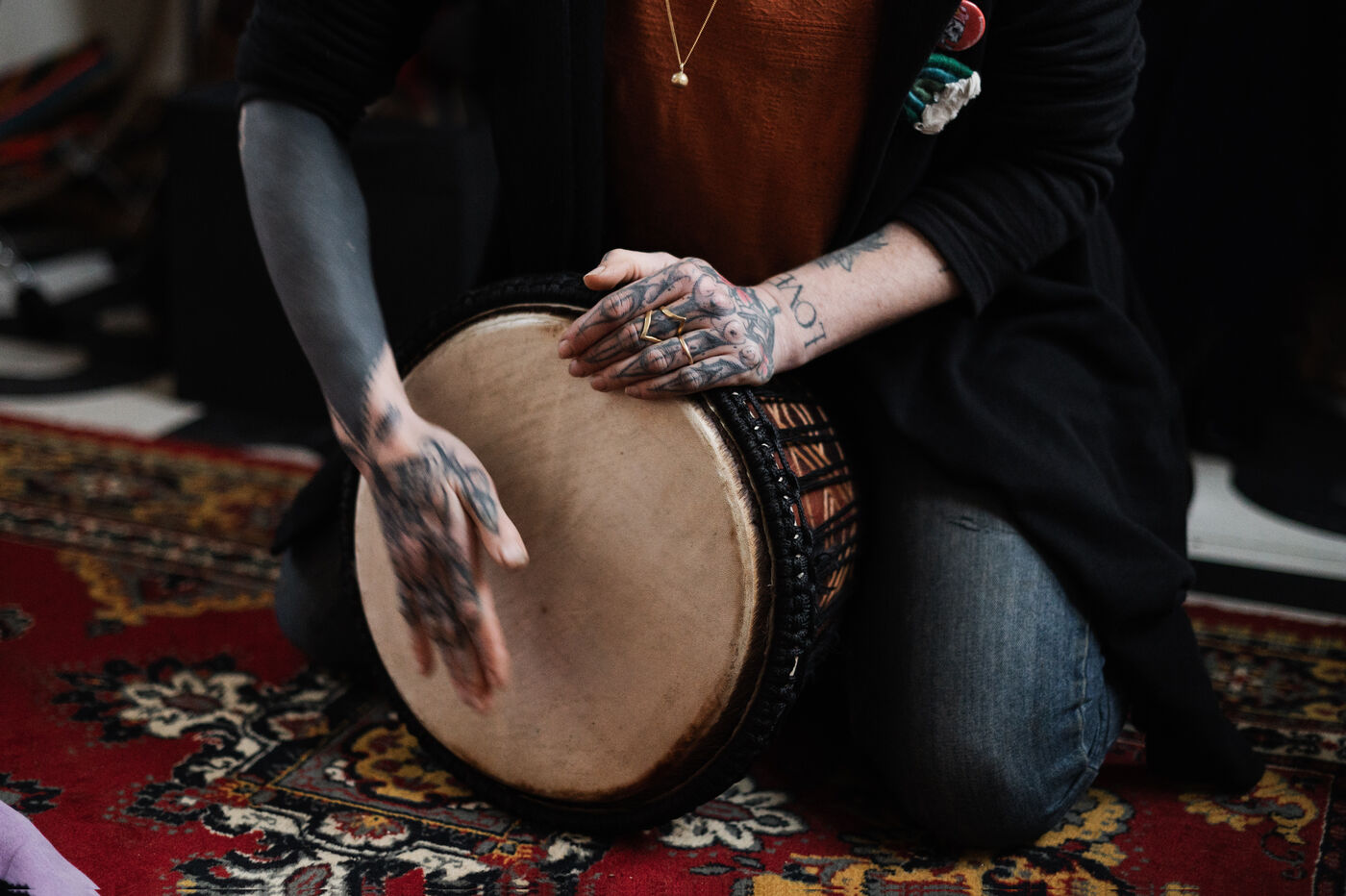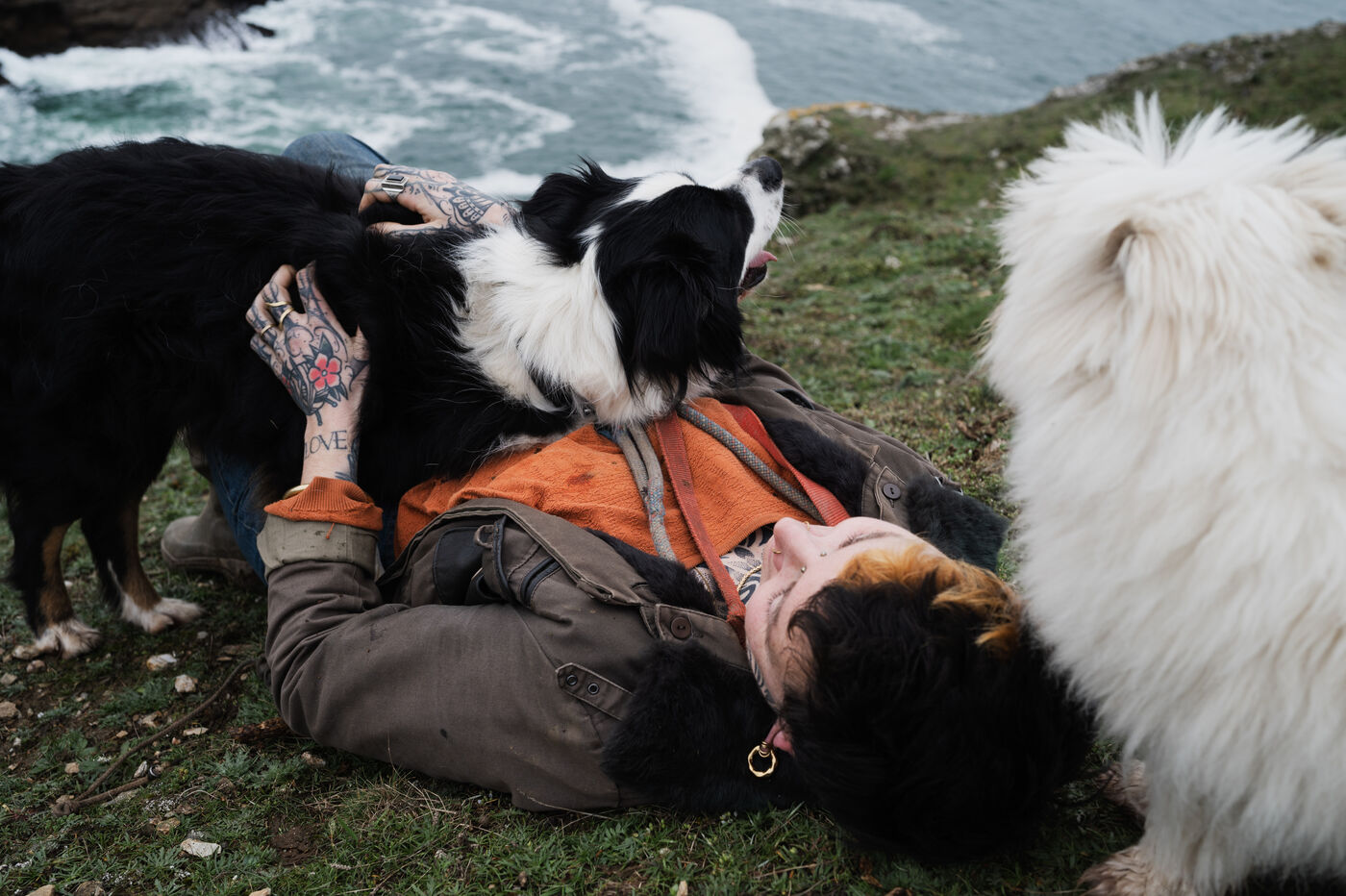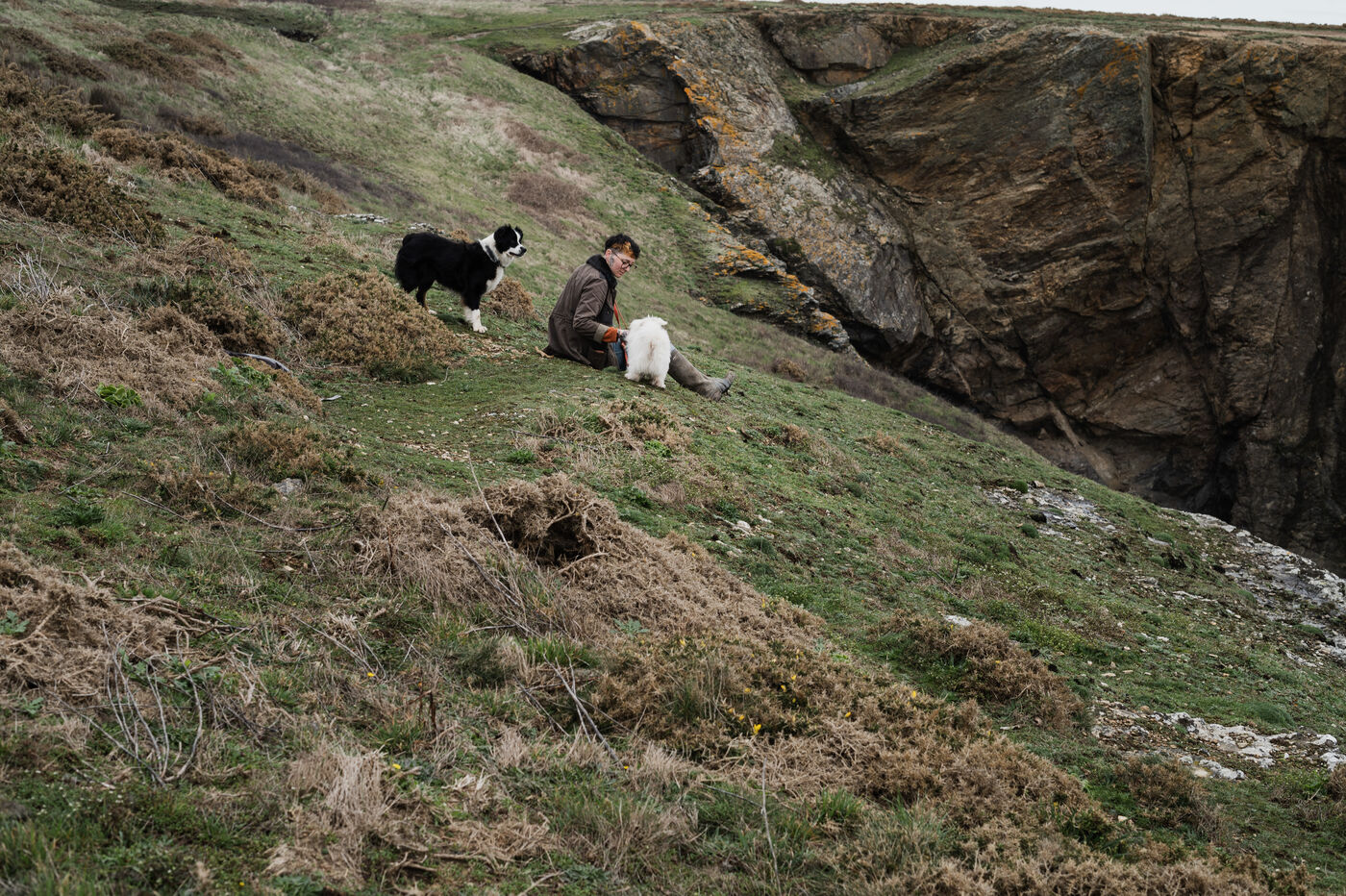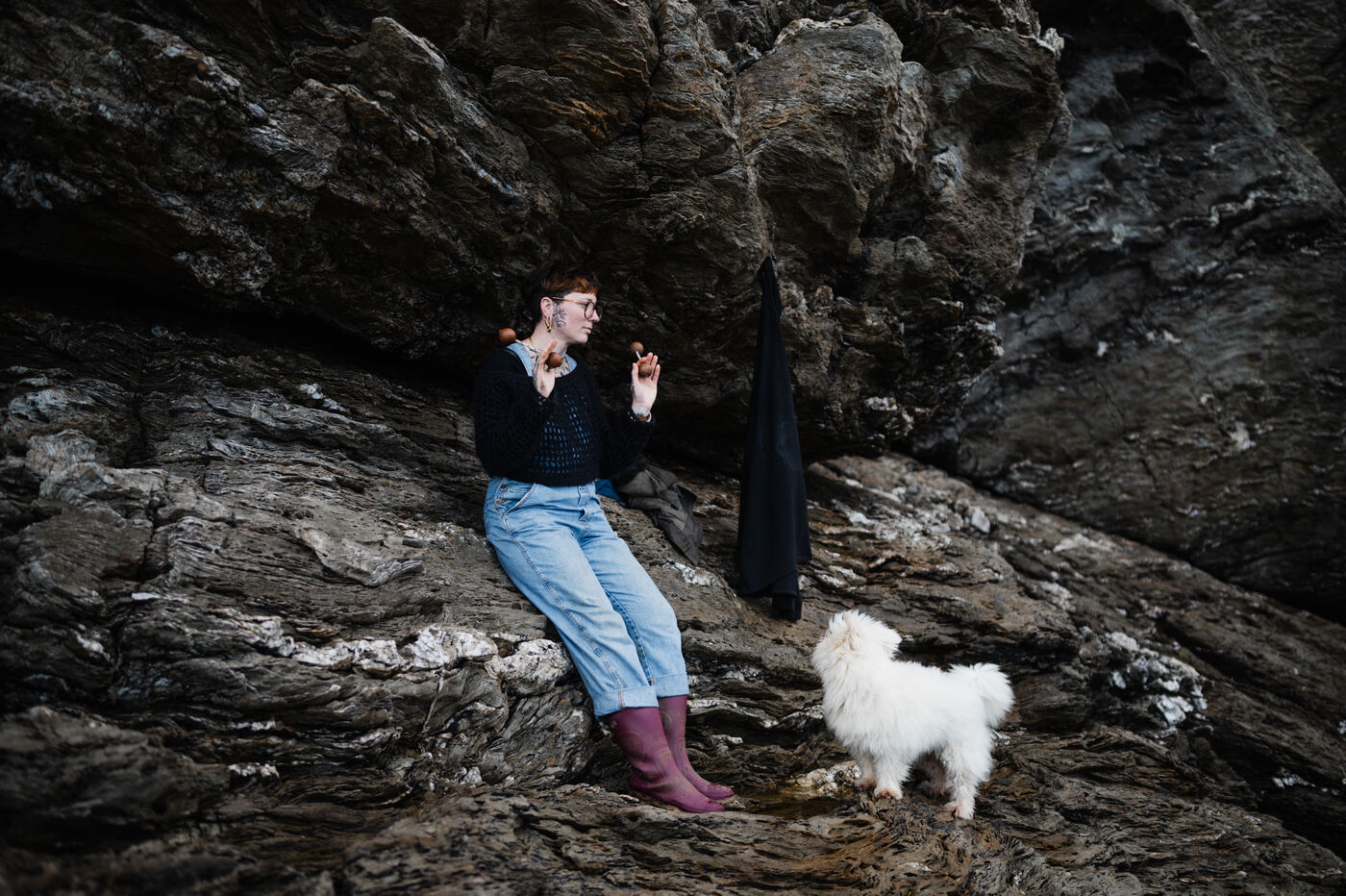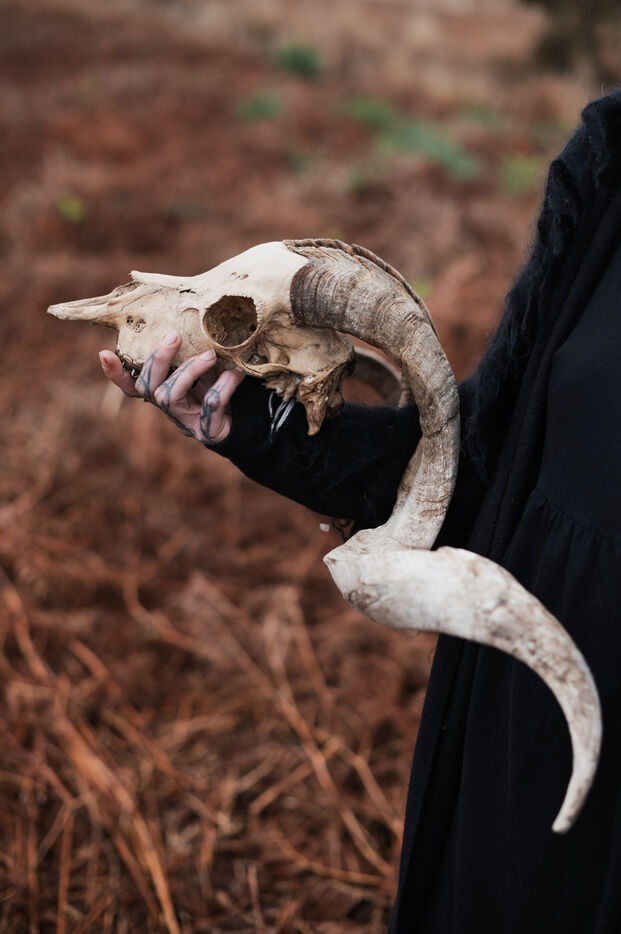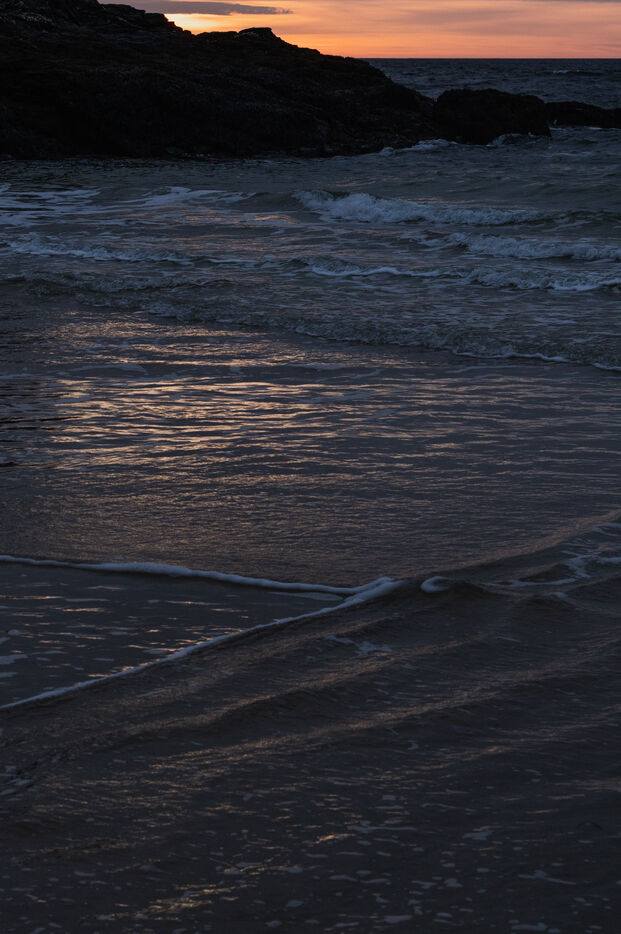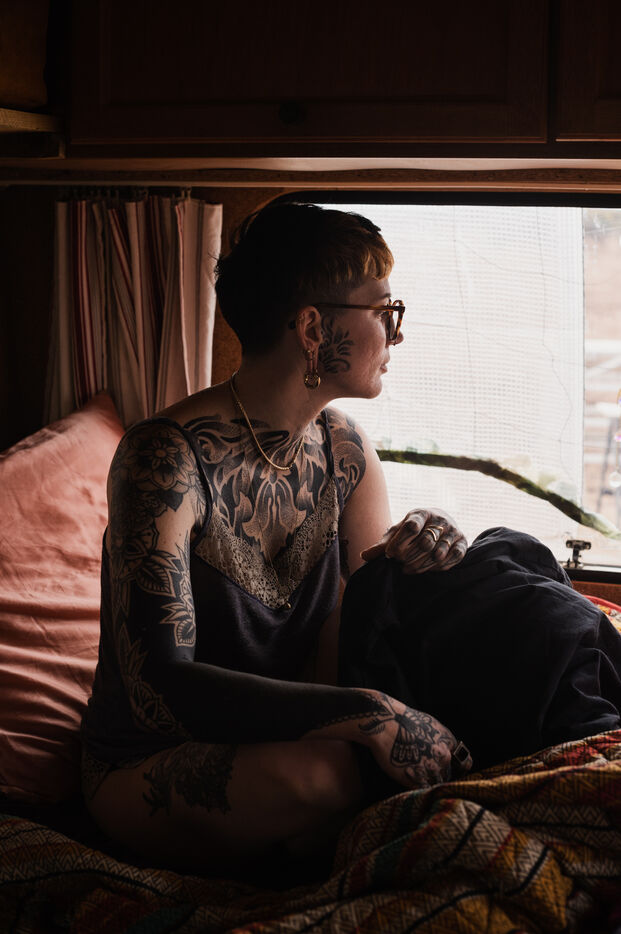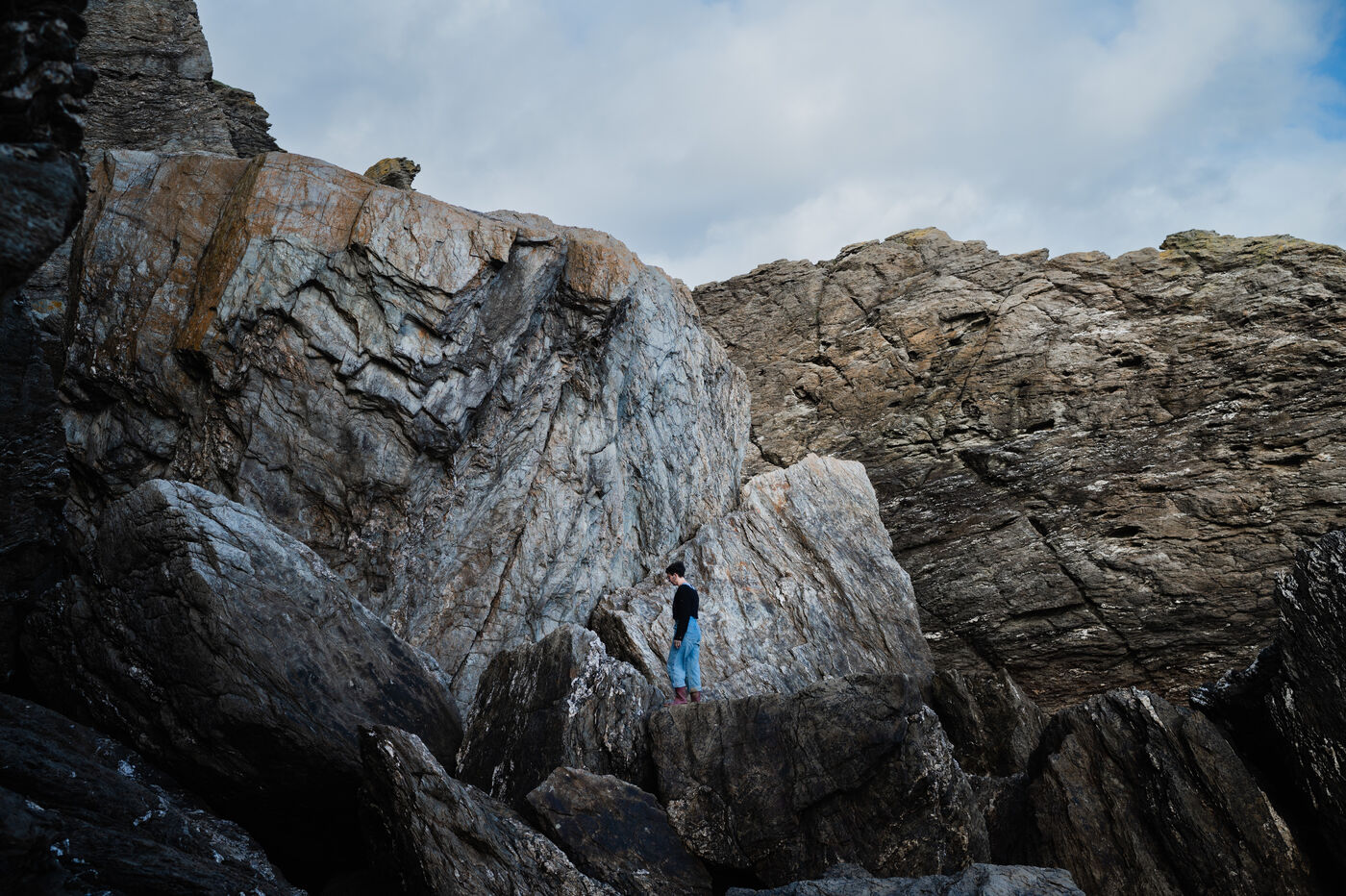FANNY
Fanny est arrivée sur l'île de Belle-Ile-En-Mer il y a cinq ans. Après quelques déconvenues avec un bailleur social et des problêmes d'insalubrité, elle a décidé de s'installer dans une caravane près de Loc Maria, près de ses trente chèvres angora, qu'elle élève pour leur laine.
Belle-Ile-En-Mer connaît des problématiques importantes de mal-logement. En effet, beaucoup d'habitations sont réservées aux locations estivales, de courte durée. Le reste de l'année, d'octobre à mars, elles sont soit fermées, soit louées à des locataires qui sont priés de quitter les lieux en avril, à l'arrivée du printemps et des touristes affluant sur l'îlle - en été, la population de Belle-Ile-En-Mer est multipliée par neuf. D'autre part, une grande partie du parc immobilier de l'île correspond à des résidences secondaires, privatisées par des propriétaires qui viennent passer quelques semaines par an lorsque les beaux jours arrivent.
Se loger sur cette île du Ponant (comme sur d'autres) peut alors devenir un combat difficile. Beaucoup de personnes sont contraintes de vivre en habitat léger (caravane, yourte, roulotte, camping...).
Fanny, elle, promeut ce mode de vie "non polluant et qui n'artificialise pas les sols", et milite pour une amélioration des conditions d'accès. Elle-même se trouve dans une situation d'illégalite puisqu'elle est installée sur un terrain de 3,5 hectares qu'elle a, certes, acheté, mais qui a une vocation professionnelle - l'accueil d'un bâtiment agricole, destiné à accueillir son troupeau, le foin, son tracteur.
Malgré ces difficultés, Fanny nourrit de nombreux projets, comme notamment obtenir l'agrément pour accueillir des familles en habitat léger sur son terrain, ou encore agrandir son troupeau de chèvres.
En attendant, elle semble avoir trouvé un équilibre harmonieux entre l'élevage de son troupeau, son mode de vie écologique, la vente sur les différents marchés de l'île des produits qu'elle fait fabriquer à partir de la laine mohair de ses chèvres, et sa vie sociale et culturelle ilienne. Elle espère néanmoins régulariser sa situation et participe activement à des réunions de travail organisées par les collectivités locales ayant pour thématiques la vie et les problématiques liées à l'insularité.
FANNY
Fanny arrived on the island of Belle-Île-En-Mer five years ago. After a few setbacks with a social landlord and problems of insalubrity, she decided to settle in a caravan near Loc Maria, as close as possible to her thirty Angora goats, which she breeds for their wool.
Belle-Île-En-Mer has a major problem with poor housing. Indeed, many homes are reserved for short-term summer rentals. The rest of the year, from October to March, they are either closed or rented out to tenants who are asked to leave in April, when spring arrives and tourists flock to the island - in summer, Belle-Île-En-Mer's population increases ninefold. On the other hand, a large proportion of the island's real estate stock consists of second homes, privatized by owners who come to spend a few weeks a year when the fine weather arrives.
Housing on this Ponant island (as on others) is therefore an uphill battle. Many people are forced to live in light housing (caravans, yurts, trailers, camping sites, etc.).
Fanny, for her part, promotes this way of life, which is "non-polluting and does not artificialize the land", and campaigns for improved access conditions. She herself finds herself in an illegal situation, as she is settled on a 3.5-hectare plot of land that she has bought, but which has a professional vocation - the site of a farm building, intended to house her herd, hay and tractor.
Despite these difficulties, Fanny has a number of projects in the pipeline, including obtaining approval to accommodate families in light housing on her land, or expanding her herd of goats.
In the meantime, she seems to have found a harmonious balance between raising her herd, her ecological way of life, selling the products she makes from her goats' mohair wool at the island's various markets, and her social and cultural life on the island. Nevertheless, she hopes to regularize her situation and actively participates in working meetings organized by the local authorities on the subject of life and issues linked to insularity.
